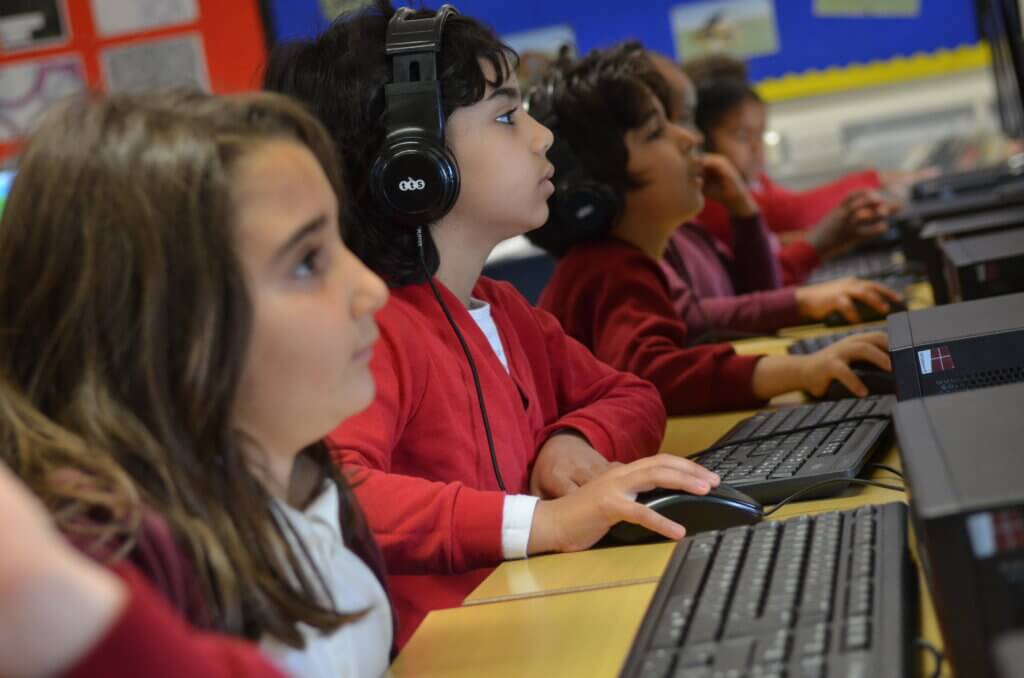We recently celebrated National Authors Day, a day intended to honour those who put pen to paper to entertain and inform, but how can we extend the reach of authors in school?
Research shows that author visits are hugely beneficial for all readers, including those who may be more reluctant. The Society of Authors published feedback with one school reporting”
…a noticeable growth in confidence. Reluctant readers start visiting the library and many started on a journey they didn’t know existed, which lasts a lifetime. Sometimes an understanding of the inspiration behind a book will motivate a previously reluctant reader to pick up a book.
Author visits can be a major source of inspiration for children. We, as educators, are constantly reminding children to view themselves as authors, to write for audience and purpose. For children to meet a favoured published author, to realise they are a real-life person who embarked on the same writing processes as themselves can prove hugely beneficial for the child’s writing development. Meeting with an author can ignite imagination and transform life chances and opportunities. It can also have a positive impact on a child’s wellbeing.
Whilst teaching in Year Five, I arranged a visit to our local library. We were incredibly lucky to have a library remarkably close to our school and, as such, the trip had no costs involved. An author was visiting the library to discuss her new book release with the children. The class were enthralled by the tales of how the book came into existence, how the author approached the writing process, drawing on personal experience, drafting and redrafting. My children were mesmerised, hanging off every word. The children returned to school energised, brimming with ideas of how they too could become published authors. A couple of weeks after we had attended the workshop a child came into class carrying a book. They explained that it was from the top sellers’ shelf in a local supermarket. The child had recognised the book and the author’s photo from our library visit and had purchased it for the class to read. The book was The Boy at the Back of the Class, and the lady we had met that day, had been none other than the now best-selling author Onjali Q. Raúf.
Of course, it is not only writing inspiration that children can gain from author visits. The National Literacy trust recently published a report which indicates that author visits to schools have a positive relationship with children and young people’s reading skills, and their enjoyment and confidence in both reading and writing. The 2019 report, Writer Visits and Children’s and Young People’s Literacy Engagement, uses data from their 2019 Annual Literacy Survey and the Great School Library Campaign.
The report found that pupils who had had an author visit that academic year:
- Were twice as likely to read above the expected level for their age (31% vs 17%)
- Were more likely to enjoy reading (68% vs 47%) and writing (44% vs 32%)
- Were more likely to be highly confident in their reading (37% vs 25%) and writing (22% vs 17%)
However, the report also found that only 1 in 4 pupils had an author visit in the academic year, and those from the poorest backgrounds were most likely to miss out. So what can we do to ensure all children get the chance to experience author visit.
Planning an Author Visit
“We cannot overstate how important author visits are for sparking a love of reading and writing in children that will ignite their imaginations, enhance their wellbeing and transform their life chances. We are thrilled to be working with ALCS to inspire pupils’ writing through a series of school visits from authors and poets, and to also launch the Ruth Rendell Award 2019 to celebrate the authors and writers who have taken great strides to champion literacy in the past year.”
Jonathan Douglas, National Literacy Trust Director
There are thousands of authors out there, but where to start booking an author visit? Follow our ten top tips:
Start planning as early as possible and decide on a rough date. Experienced authors are booked up early, so try to plan at least 6 months in advance and have a range of dates available if you can.
Consider the type of event your school / pupils / staff need, also considering how the event supports your school’s curriculum.
Once you have decided on the theme of the day, consider how this links to your curriculum and which authors you feel could provide the experience you seek. To help this choice you could:
- Use the Book Trust resources. Book Trust dedicates an area on its website to helpful advice, useful links and contacts, explaining how to secure a booking with an author or illustrator of your choice.
- Consider contacting other schools and asking for their recommendations, or visit your local independent bookshop and ask for advice!
- Another useful resource when choosing an author to conduct an author visit is through social media. Sites such as Twitter and Instagram are used by many authors as a platform, and most authors can be contacted directly by you or your pupils. As the sites are interactive, comments left by schools who may have had the author deliver a workshop can also be accessed and used as reviews when deciding which author suits your school
Contact your chosen author to check availability, fees and options for your session.
Once an author has been chosen and terms agreed, plan details of the entire day carefully to allow the maximum benefit from the author’s time.
Create excitement in school about the event, advertise it on the school website, school Twitter and through any school publications. Enthuse the whole school community!
Build check-in points into your diary to keep in close contact with the author from the time of booking to their visit.
Share the timetable with the author and school staff.
Plan follow-up work and additional experiences designed to build upon the work carried out during the event with the author. This allows your children to see the importance of the outcomes of the event by linking any learning with their own work.
Send a thank you and pay any invoices promptly.
If a face to face visit cannot be facilitated, then why not consider a virtual visit instead? In addition to launching research, the National Literacy Trust has created a free digital poet in residence resource. The resource gives the primary schools for whom it is not possible to have an author writer or poet visit in person, a digital visit from professional poet Simon Mole. There are five lessons available, and all are supported with accompanying lessons plans and engaging videos.
At One Education we fully understand the impact an author visit can have. It enthuses children and staff and focuses on the importance of reading. The One Education Reading Award is an excellent way for schools to demonstrate their commitment in raising the standards of reading for all children. With over 300 high-quality resources, including support for organising your own author visit, the Reading Award can help your practice to continue to develop further. For more information, watch our free webinar or contact simone.nixon@oneeducation.co.uk.
















